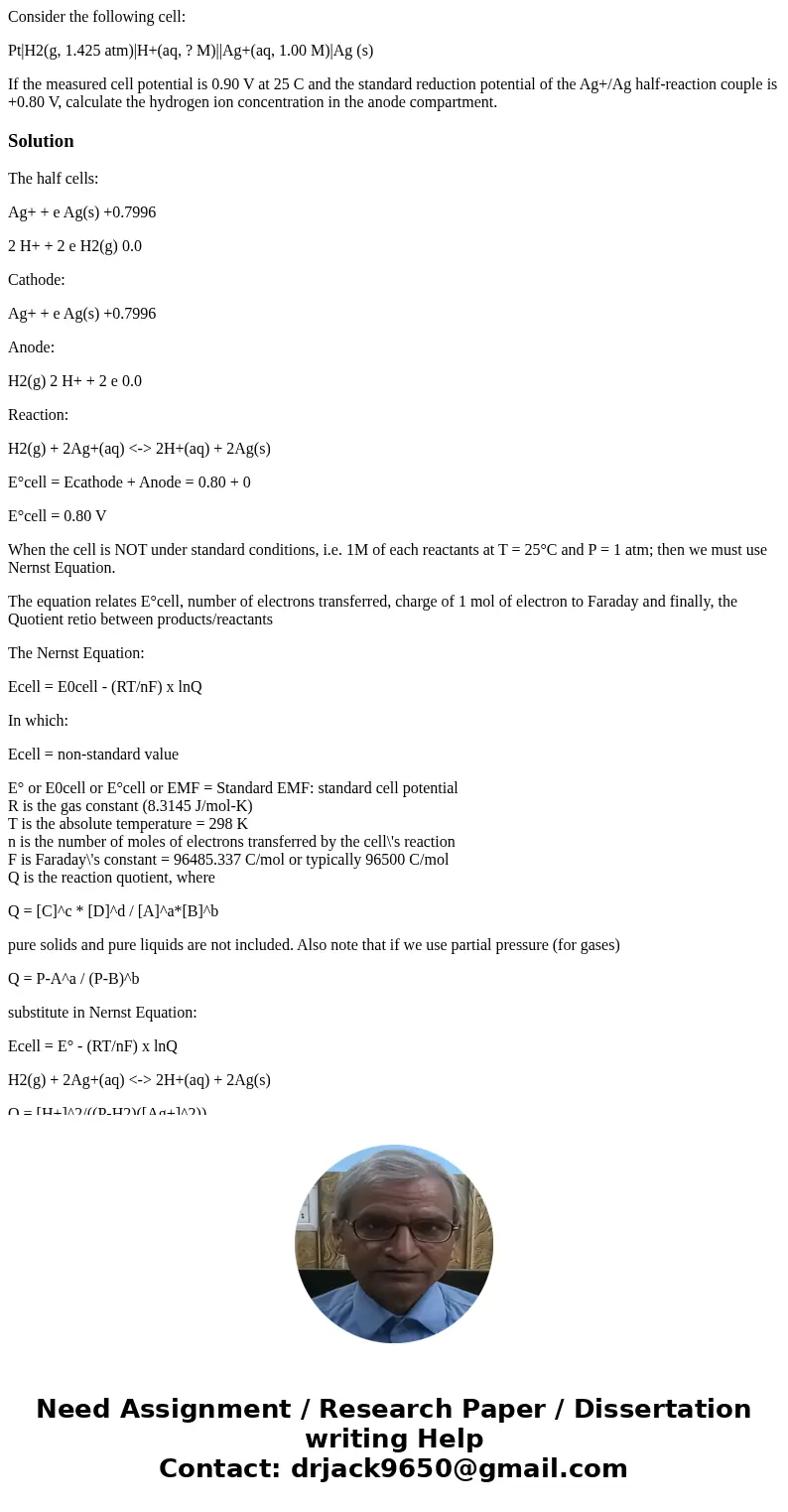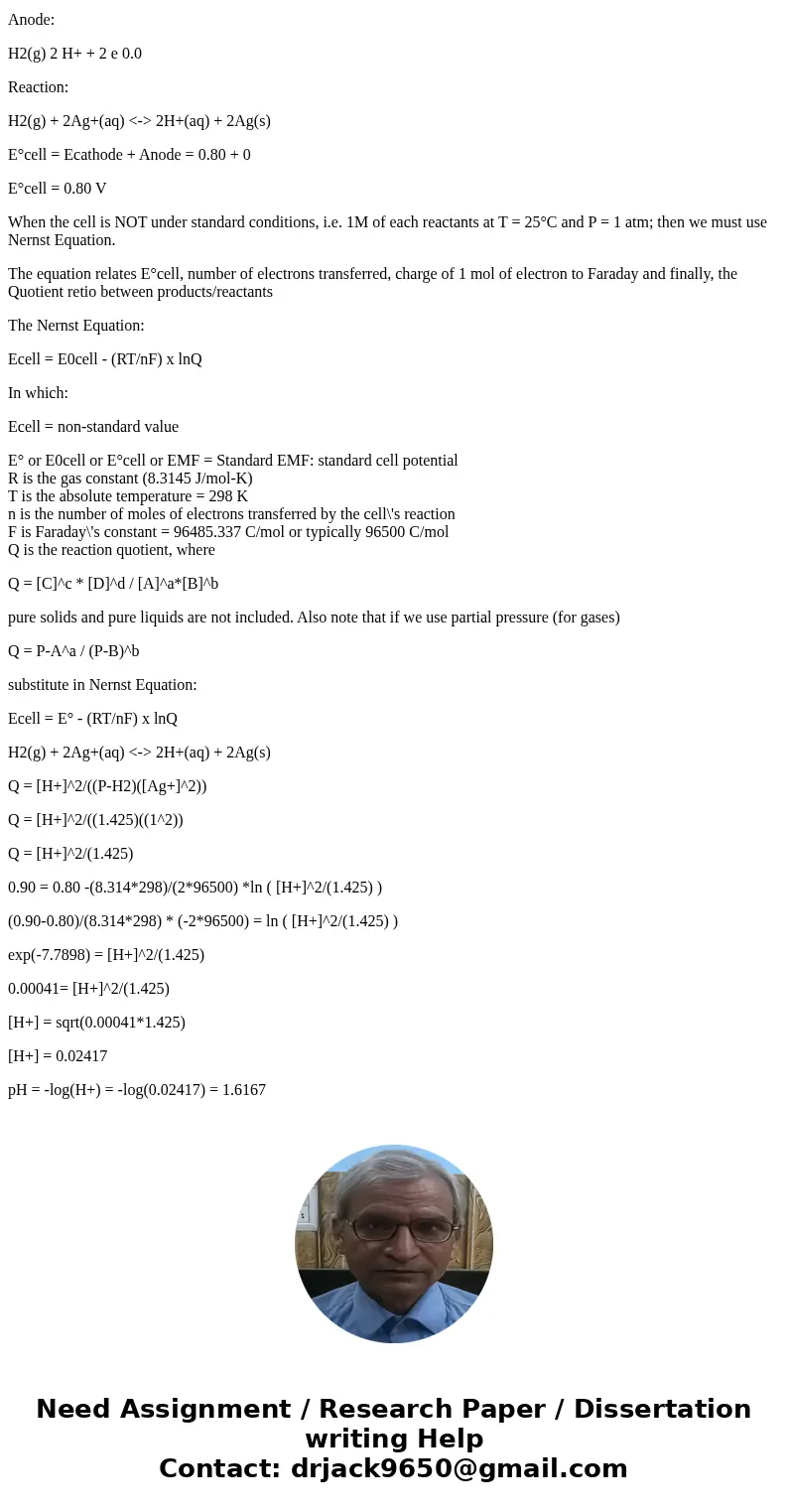Consider the following cell PtH2g 1425 atmHaq MAgaq 100 MAg
Consider the following cell:
Pt|H2(g, 1.425 atm)|H+(aq, ? M)||Ag+(aq, 1.00 M)|Ag (s)
If the measured cell potential is 0.90 V at 25 C and the standard reduction potential of the Ag+/Ag half-reaction couple is +0.80 V, calculate the hydrogen ion concentration in the anode compartment.
Solution
The half cells:
Ag+ + e Ag(s) +0.7996
2 H+ + 2 e H2(g) 0.0
Cathode:
Ag+ + e Ag(s) +0.7996
Anode:
H2(g) 2 H+ + 2 e 0.0
Reaction:
H2(g) + 2Ag+(aq) <-> 2H+(aq) + 2Ag(s)
E°cell = Ecathode + Anode = 0.80 + 0
E°cell = 0.80 V
When the cell is NOT under standard conditions, i.e. 1M of each reactants at T = 25°C and P = 1 atm; then we must use Nernst Equation.
The equation relates E°cell, number of electrons transferred, charge of 1 mol of electron to Faraday and finally, the Quotient retio between products/reactants
The Nernst Equation:
Ecell = E0cell - (RT/nF) x lnQ
In which:
Ecell = non-standard value
E° or E0cell or E°cell or EMF = Standard EMF: standard cell potential
R is the gas constant (8.3145 J/mol-K)
T is the absolute temperature = 298 K
n is the number of moles of electrons transferred by the cell\'s reaction
F is Faraday\'s constant = 96485.337 C/mol or typically 96500 C/mol
Q is the reaction quotient, where
Q = [C]^c * [D]^d / [A]^a*[B]^b
pure solids and pure liquids are not included. Also note that if we use partial pressure (for gases)
Q = P-A^a / (P-B)^b
substitute in Nernst Equation:
Ecell = E° - (RT/nF) x lnQ
H2(g) + 2Ag+(aq) <-> 2H+(aq) + 2Ag(s)
Q = [H+]^2/((P-H2)([Ag+]^2))
Q = [H+]^2/((1.425)((1^2))
Q = [H+]^2/(1.425)
0.90 = 0.80 -(8.314*298)/(2*96500) *ln ( [H+]^2/(1.425) )
(0.90-0.80)/(8.314*298) * (-2*96500) = ln ( [H+]^2/(1.425) )
exp(-7.7898) = [H+]^2/(1.425)
0.00041= [H+]^2/(1.425)
[H+] = sqrt(0.00041*1.425)
[H+] = 0.02417
pH = -log(H+) = -log(0.02417) = 1.6167


 Homework Sourse
Homework Sourse